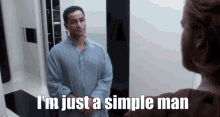Unbundling: Knowledge-Understanding-Application
— figure-out — 4 min read
Feynman magically demonstrated the essence of numbers through his hands and ever since then I have been awestruck by the epitome of Feynman's understanding and the depth of his curiosity.
How much understanding is enough?
Is knowledge without application useful?
What does it mean to truly understand and retain knowledge so as to replicate any sort of possible outcome?
If you have ever found yourself juggling with questions of similar homogeneity, onboard this rocket ship, I will take full responsibility for a kick ass ride.
If you are new here or reading it first time,
Hi,
I am Aman and this safe space is my own metaverse, do check out all the adventures, hope you enjoy your ride :))

Usefulness Of Knowledge
Countless efforts have been taken to inculcate the notion of collecting knowledge within us and I too have had my fair bit of hard time, juggling with this notion, so as a fellow comrade let me share my pain with you
Is knowledge without application even useful?
This is one of my deep endeavors so pardon me if your experience with this adventure is a bit hazy and mind bending.
I know that Earth revolves around the sun, and I am sure all of you do
but
Is there any need for such type of a knowledge collection?
Maybe yes for some folks voyaging certain adventures, the hobbyists, the explorers or as a facts to be taught in schools to give us a basic understanding of what the world is all about but beyond that it seems absolutely unnecessary to me to collect such a knowledge.
Knowledge is a priced possession and that is what we have been taught from the beginning, which is somewhat right if looking from certain aspects. This is also the reason as to why we never question the usefulness of knowledge.
I am a simple man, engineer by approach, the mode through which I visualize our constructed reality is through tools, for me if a tool has no use, I will probably never collect it and keep it in my toolbox even if it increases the tools in my possession. I hope you are getting what I am inferring to here:
There are only a certain set of variables the human brain can handle at a time, contrary to what we may believe, we are not suited to understand the entirety of the world around us, now this may be a bit hard to digest, it's for me too.
The greatest paradox that comes with chasing knowledge just for the sole purpose of collection is that the more we unbundle the more we realize about our own limitations. At some point in time we need to have a very good clarity with ourselves as to why the collection(specific knowledge) matters.
Why is it useful to us?

Memory and Understanding: Age Old Relationship
The relationship between understanding, knowledge and application is a rather funny one,
while knowledge comes with understanding. Understanding does not account for the fact that many a times we fail to remember what we understood, why is it so?
In my opinion, without application the entire notion of knowledge and understanding subsets of knowledge is vague overall, people struggle with memory and retention, but where they fail in particular is the integration of application with understanding, which is the most crucial piece of the puzzle.
Let me take the help of analogy here,
Yes I know how screw drivers are made and how they work but this is not where the epicenter of our endeavors should be.
The main question still remains
Where can we use it?
The Classical Chicken Egg Equation: Theory || Practice
A lot of academia relies on theory preceding application and this is where I like to diverge from the norm, In my opinion there is no theory without application, the entire purpose of theory is to justify reality.
To theorize is a way of coming closer to predicting the outcome which doesn't necessarily guarantee it's certainty.
Certainty is one of the most admirable human pursuit, we as collective organizations have poured countless efforts to predict the unpredictable, which has given to a lot of unnecessary theory that we surround ourselves with.
Eventually we will have to question the usefulness of theory, The derivation of application from knowledge is what makes us antifragile, not the other way around.
Curiosity || Understanding : Choose One
Formal academia forces us to choose both without expanding upon the difference properly, formal academia often classifies facts as knowledge forcing us to remember things which are least bit useful to us.
I see a lot of people around me, understanding every bit of their constructed reality unaware of their failure to retain, ending up clogging their knowledge stack. Curiosity often bridges this by shifting the reasoning from
[collection of knowledge] to [curiosity to understand]
which is a far more better aptitude to have in my opinion.
There is no application without understanding and there is no proper understanding without curiosity, now I may be wrong here but the world I am building here with my words rest on these fundamental assumptions, would love to be contradicted. :))
Conclusion
Knowledge is a heavy word to throw around, ultimately all we want is to understand as many things as we can and this is where the paradox loops us in, even though understanding/unbundling everything is a somewhat perusable the question I still find myself juggling with is:
Is it useful?
More importantly,
can we derive any application through it?
We cannot solve all the problems around us in our finite time, solving problems which are unique to me, seems to be the most sensible approach for now.
I am simple man, engineer by fundamentals, a tool which has no application is useless to me in my finite time, It makes no sense for me to understand it.